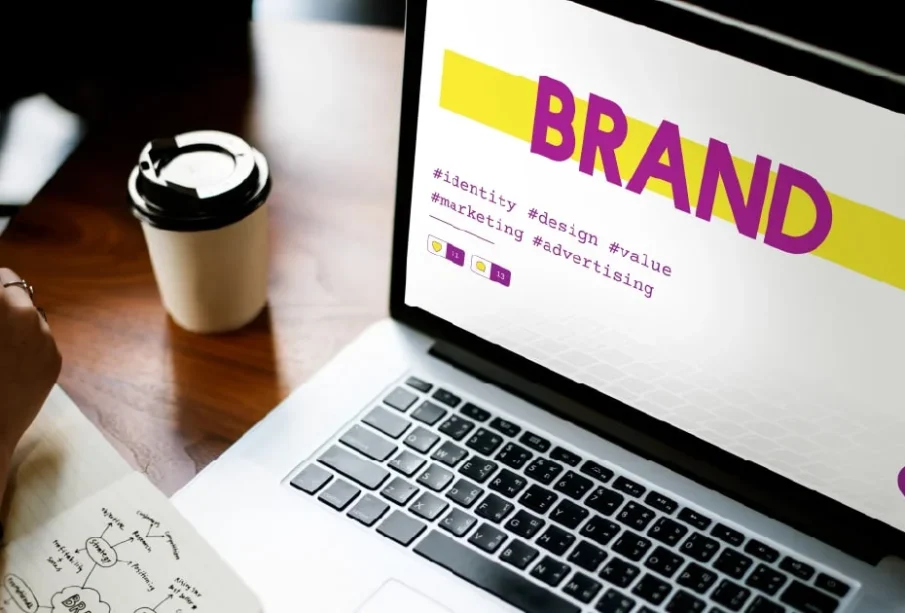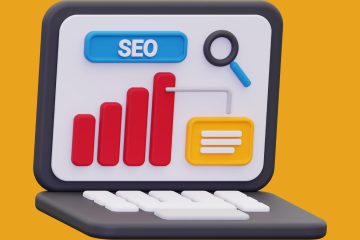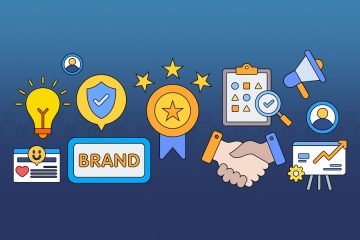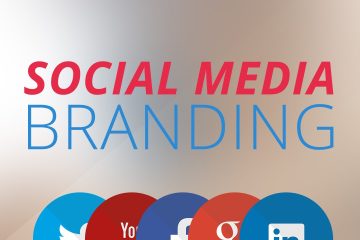The Benefits of Brand Identity Development for 2025

As we approach 2025, the importance of a strong brand identity has never been more pronounced. In an era where competition is fierce, customer loyalty is fleeting, and digital channels dominate the landscape, establishing a powerful brand identity is essential for businesses aiming to stand out and build a lasting presence. Brand identity development, once seen as a luxury for large corporations, has now become a necessity for businesses of all sizes, especially startups and small to medium enterprises (SMEs).
In a world where consumers have a wealth of choices at their fingertips, your brand identity is much more than just a logo or tagline. It’s the essence of how your customers perceive you, interact with you, and build relationships with your business. But how does brand identity truly benefit companies, and why is it so critical as we move toward 2025?
1. Establishing Trust and Credibility
In the digital age, trust is a currency that businesses must cultivate carefully. Consumers today are discerning; they no longer engage with brands that appear untrustworthy or inconsistent. A well-developed brand identity ensures that your business communicates a consistent message across all touchpoints, from your website to your social media channels. This consistency builds trust and credibility, two cornerstones of long-term customer relationships.
A cohesive visual identity—logos, color schemes, fonts, and design elements—paired with a clear and compelling voice and message, provides a sense of reliability and professionalism. For instance, brands like Apple, Nike, and Coca-Cola have mastered the art of a unified brand identity that resonates with consumers globally. Their logos and messaging are instantly recognizable, and they stand as symbols of quality and trust.
Why It Matters for 2025:
As consumers become more cautious about who they spend their money with, a clear brand identity will be paramount in establishing trust quickly. Businesses that don’t focus on this may risk blending in with the noise of the market, losing customers to more confident and credible competitors.
2. Differentiating from the Competition
The modern marketplace is crowded with options. Whether you’re operating in the tech, retail, service, or any other industry, it’s increasingly difficult to stand out. A strong brand identity acts as a powerful tool for differentiation. It allows your business to carve out a unique position in the minds of consumers, making it instantly identifiable and memorable.
Brand identity development is not just about being seen—it’s about being remembered and recognized for what makes you different. This could be your company’s values, your approach to sustainability, your customer service philosophy, or the way you engage with your community. For example, Patagonia has distinguished itself not just through high-quality outdoor gear, but through its commitment to environmental sustainability and ethical business practices, which are clearly communicated in its brand identity.
Why It Matters for 2025:
As more companies join the digital landscape, having a strong and unique brand identity will help businesses stand out in a saturated market. A well-differentiated brand is essential for attracting the right customers and building a loyal community, especially in competitive industries like technology, e-commerce, and food delivery services.
3. Creating Emotional Connections with Customers
A well-defined brand identity speaks directly to the emotions of its audience. Consumers today want to feel connected to the brands they support. They look for companies whose values align with their own, and they want to feel a sense of belonging when they purchase products or services. A strong brand identity provides the foundation for these emotional connections.
Think about how brands like Starbucks, Nike, and Disney have mastered the art of creating emotional bonds with their customers. Starbucks isn’t just a coffee shop; it’s a “third place” for people to connect. Nike’s “Just Do It” tagline is more than just about sports—it’s about perseverance, motivation, and overcoming obstacles. Disney isn’t just about entertainment; it’s about creating magical experiences and lasting memories.
Why It Matters for 2025:
Consumers are increasingly seeking out brands that align with their own personal identity and values. Brands that can tap into these emotions will foster deeper relationships with their customers, leading to higher customer retention rates and more meaningful engagement. In 2025, personalization and emotional connection will be key drivers of business success.
4. Enhancing Customer Loyalty and Advocacy
A strong brand identity doesn’t just attract customers; it turns them into loyal advocates. When customers have a positive emotional connection with your brand, they are more likely to become repeat buyers and even promote your products to others. This kind of brand loyalty is incredibly valuable because it not only boosts sales but also lowers customer acquisition costs. Word-of-mouth marketing, fueled by satisfied customers, is one of the most powerful and cost-effective forms of advertising.
A recognizable and consistent brand identity reinforces the reasons why customers are loyal in the first place. It gives them something to relate to, something they feel proud to associate with. This is why companies like Tesla, Apple, and Harley-Davidson have such a dedicated following. Their brand identities create a sense of community and belonging among their customers.
Why It Matters for 2025:
As customer loyalty becomes more elusive in an era of constant digital noise and marketing overload, having a brand identity that resonates emotionally with customers will be crucial for retaining them in the long term. Loyal customers are far more likely to advocate for your brand, thus increasing your brand’s reach without requiring significant additional investment.
5. Improving Business Decision-Making
Brand identity development isn’t just a marketing concern—it’s a strategic business decision that affects every facet of your organization. A well-established brand identity serves as a blueprint for decision-making, guiding everything from product design to customer service to advertising strategies. It provides a framework that helps ensure all activities are aligned with the brand’s core mission, vision, and values.
For startups and growing businesses, this sense of direction can be invaluable. Whether you’re considering a new product line, launching a marketing campaign, or expanding into new markets, having a clear brand identity will help ensure that your decisions stay true to your company’s purpose and resonate with your target audience.
Why It Matters for 2025:
As businesses scale, it becomes increasingly difficult to maintain focus. A strong brand identity offers clarity, making it easier for business leaders to make decisions that align with their long-term goals and core values. In the face of rapid technological changes and market shifts, a clear identity helps companies stay grounded and true to their original mission.
6. Future-Proofing Your Business
The world is changing rapidly, and businesses need to be agile to adapt. However, a well-crafted brand identity offers stability amidst change. It gives your company a solid foundation that can evolve with trends without losing its essence. A good brand identity is timeless; while it may be updated or refined over time, it always reflects the core principles of the company.
As digital transformation continues to accelerate, and as consumers become more sophisticated and discerning, having a future-proof brand identity will ensure that your business remains relevant. Whether it’s adopting new technologies, embracing sustainability practices, or responding to cultural shifts, a strong brand identity will allow your company to pivot without losing its authenticity.
Why It Matters for 2025:
With constant technological advancements, demographic shifts, and changes in consumer behavior, businesses need to remain adaptable. A strong brand identity helps ensure that a company can evolve without compromising its values or alienating its customer base, allowing for sustainable growth in an ever-changing landscape.
Conclusion
As we approach 2025, developing a robust and clear brand identity is more than just a marketing trend—it’s a fundamental business strategy. The benefits of brand identity development go far beyond creating a memorable logo or catchy tagline. A strong brand identity builds trust, differentiates your company, fosters emotional connections, drives loyalty, and improves decision-making. It is the bedrock upon which businesses can scale, innovate, and adapt to future challenges. For startups and established companies alike, investing in brand identity development is not only essential for long-term success but crucial for navigating the complex business landscape of 2025 and beyond.
More News
-
Understanding Startup Growth You Didn’t Know
November 8, 2024 -
Managing International Clients Legally With a Freelance Visa
October 16, 2025 -
Emerging Tools for Risk Management for Startups
January 15, 2025
Top News
-
Managing International Clients Legally With a Freelance Visa
October 16, 2025 -
Training and Development for Business Service Professionals
October 8, 2025 -
Business Service Continuity Planning: Preparing for Disruptions
October 8, 2025
Most Viewed
Recent Posts
- Managing International Clients Legally With a Freelance Visa
- Training and Development for Business Service Professionals
- Business Service Continuity Planning: Preparing for Disruptions
- Corporate Wellness ROI: Why Businesses in Singapore Are Investing in Gym Fitness Programs for Employees
- Innovative Solutions for Green and Efficient Industries
Archives
- October 2025 (3)
- September 2025 (2)
- July 2025 (2)
- May 2025 (5)
- April 2025 (6)
- March 2025 (10)
- February 2025 (9)
- January 2025 (7)
- December 2024 (4)
- November 2024 (1)
- January 2023 (1)
- May 2022 (1)
- March 2020 (1)
Categories
- Business (10)
- E-commerce & Online Business (6)
- Finance & Accounting (5)
- HR & Hiring (5)
- Industries (6)
- Legal & Compliance (5)
- Management & Growth (5)
- Marketing & Branding (5)
- Technology & Tools (5)









